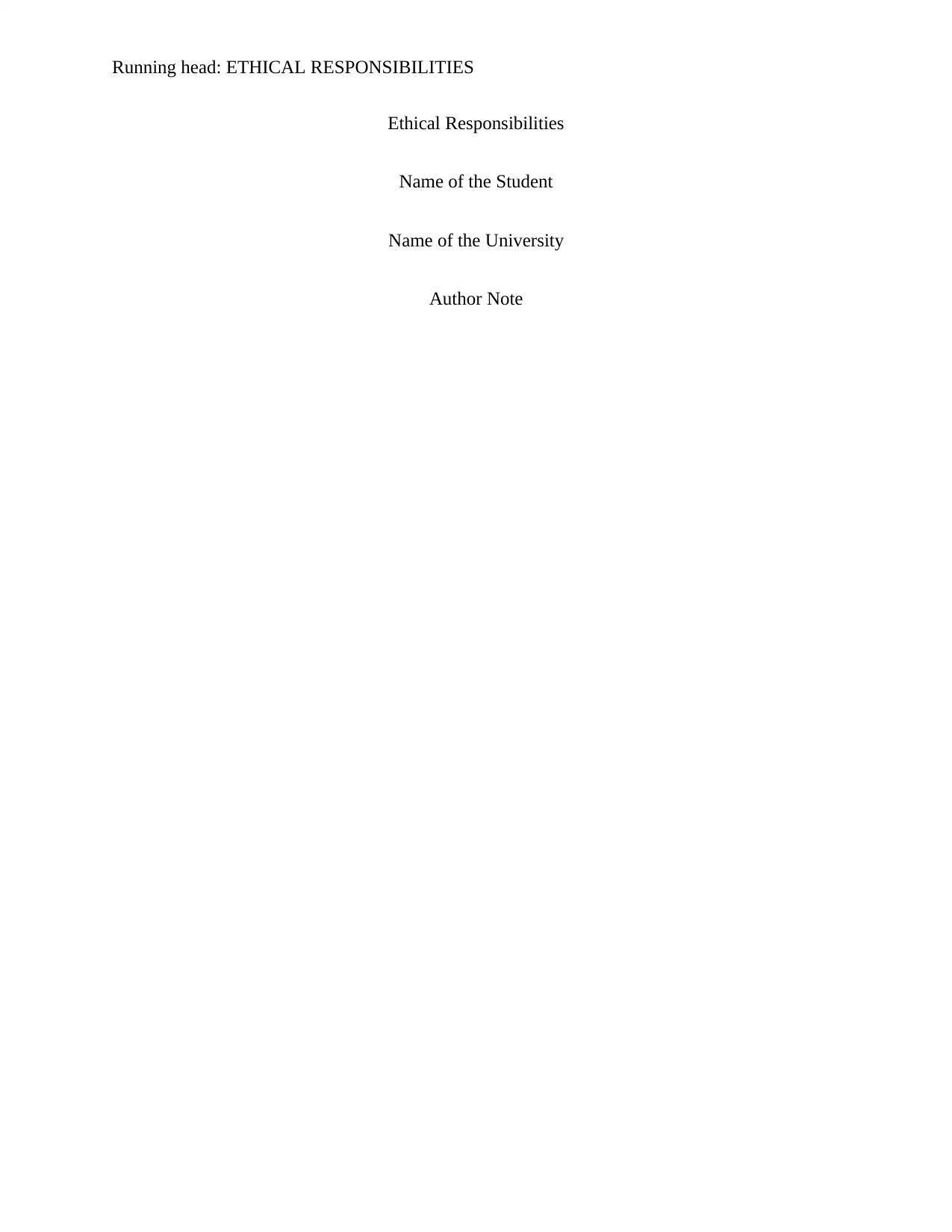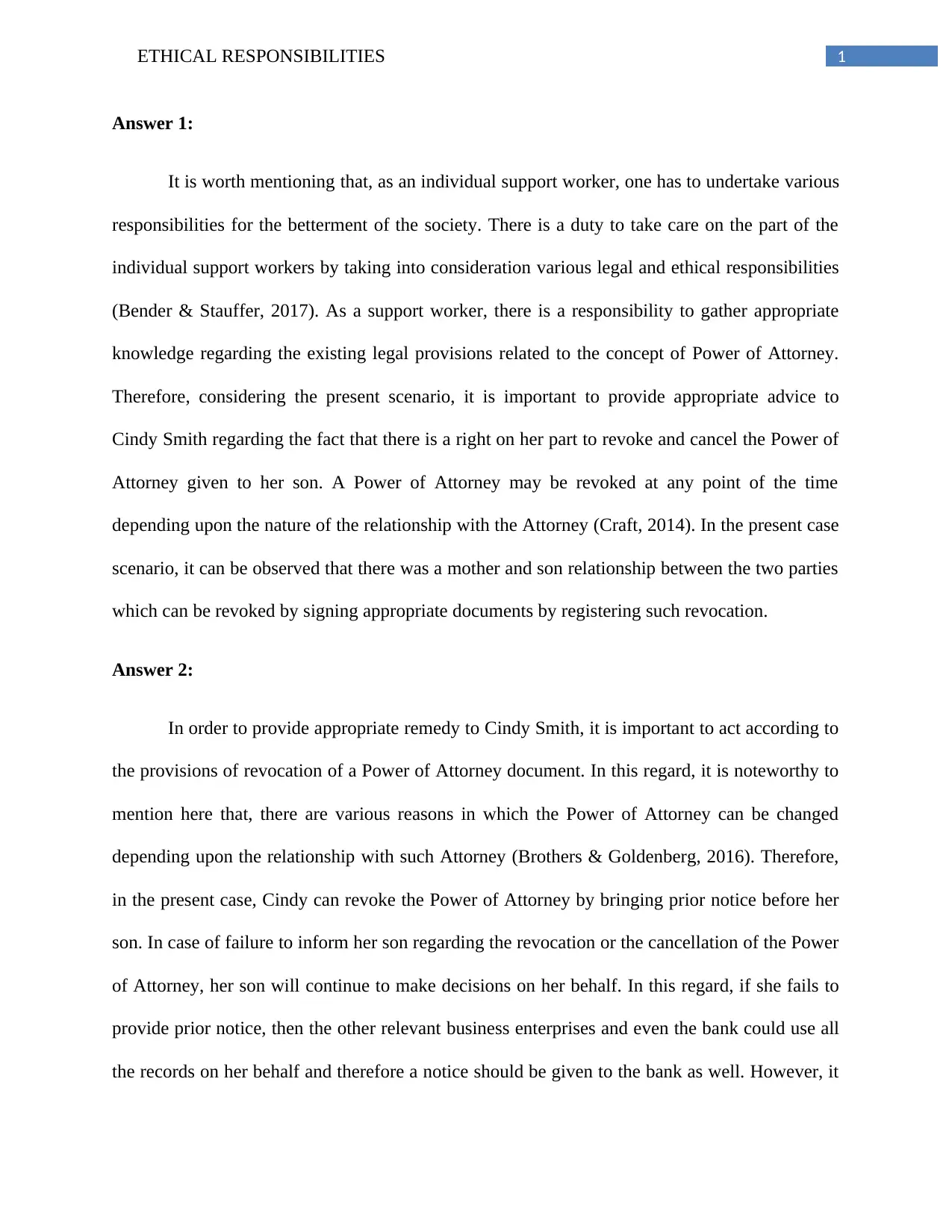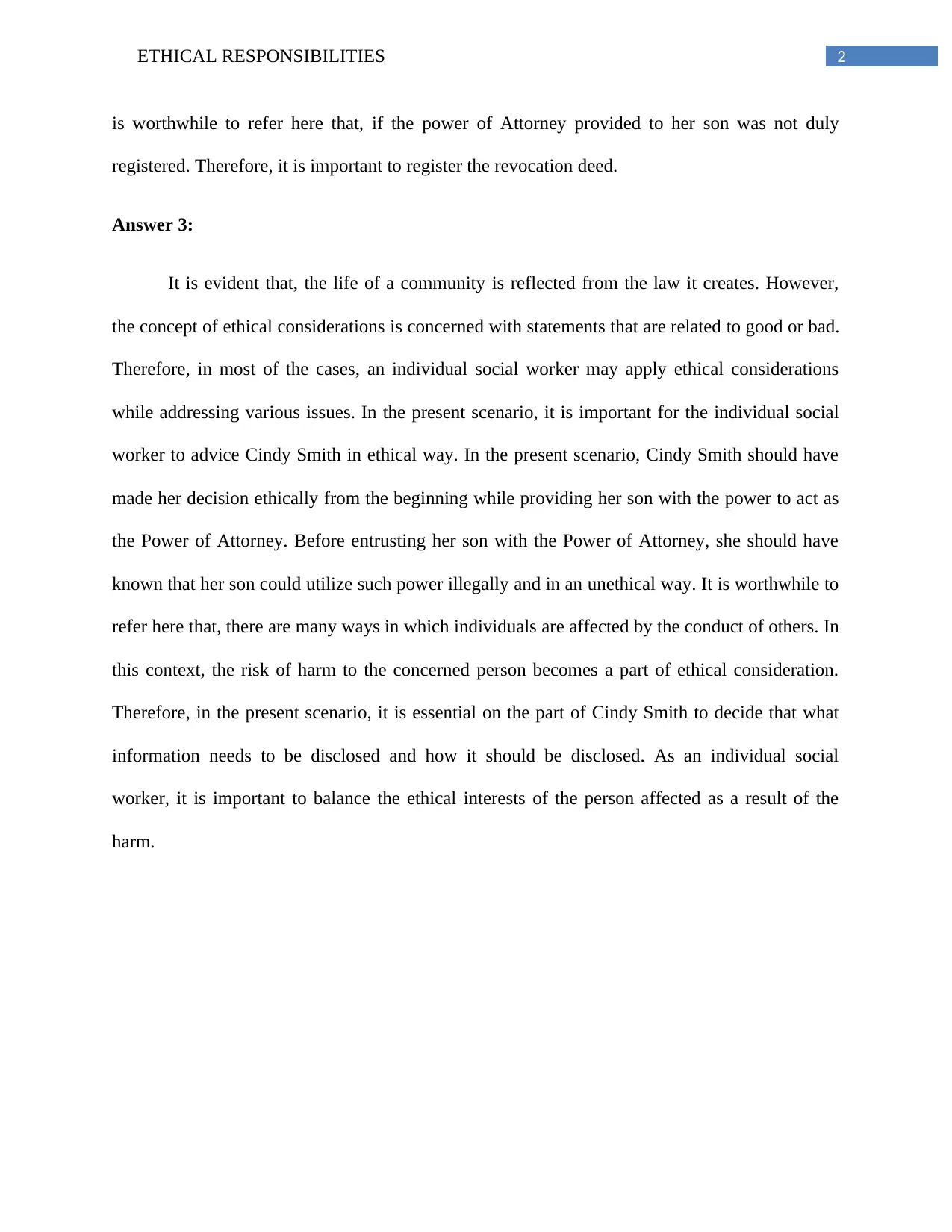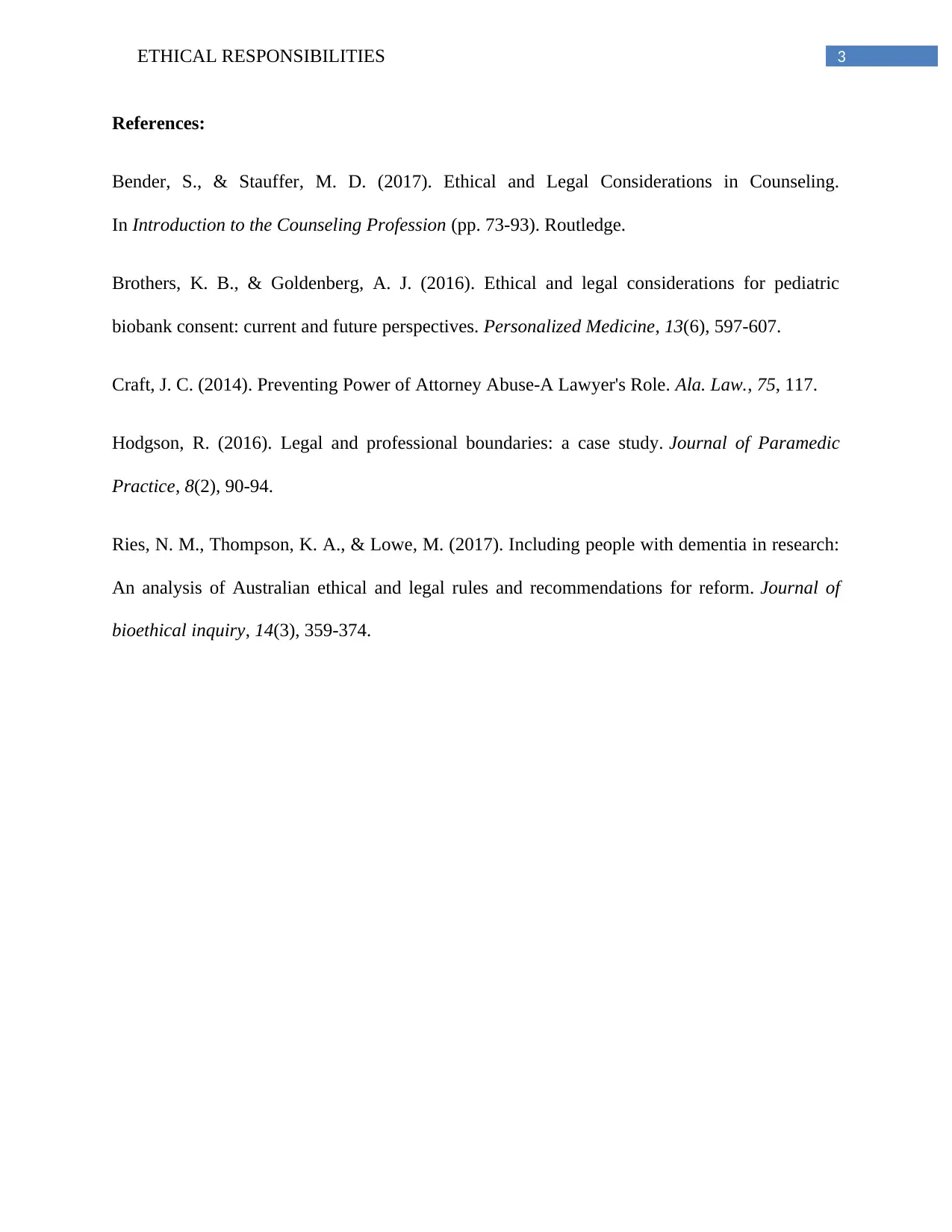Case Study: Ethical and Legal Dilemmas in Individual Support Work
VerifiedAdded on 2023/06/12
|4
|838
|467
Case Study
AI Summary
This case study delves into the ethical and legal responsibilities of an individual support worker, focusing on a scenario involving Cindy Smith and her son's Power of Attorney. It addresses Cindy's right to revoke the Power of Attorney, the necessary steps for revocation, including informing relevant parties like banks, and the ethical considerations Cindy should have made initially. The study emphasizes the importance of ethical decision-making, balancing interests, and disclosing information appropriately to prevent harm. It references legal and ethical research to support its analysis, providing a comprehensive overview of the duties and considerations in such situations. Desklib provides access to this and other solved assignments to aid students in their studies.
1 out of 4








![[object Object]](/_next/static/media/star-bottom.7253800d.svg)